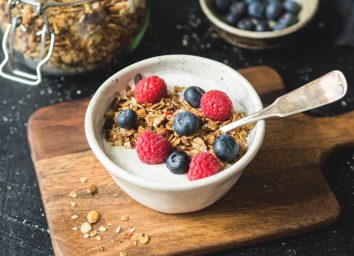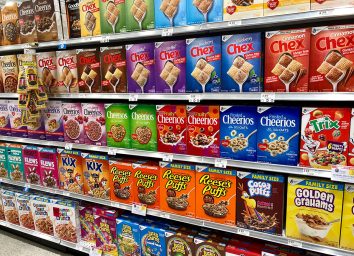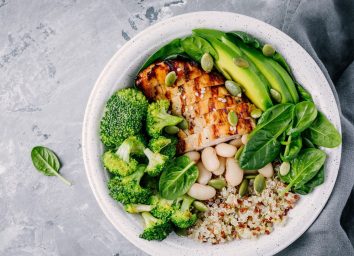Sneaky Ways You’re Gaining Weight and Don’t Know It, Say Experts
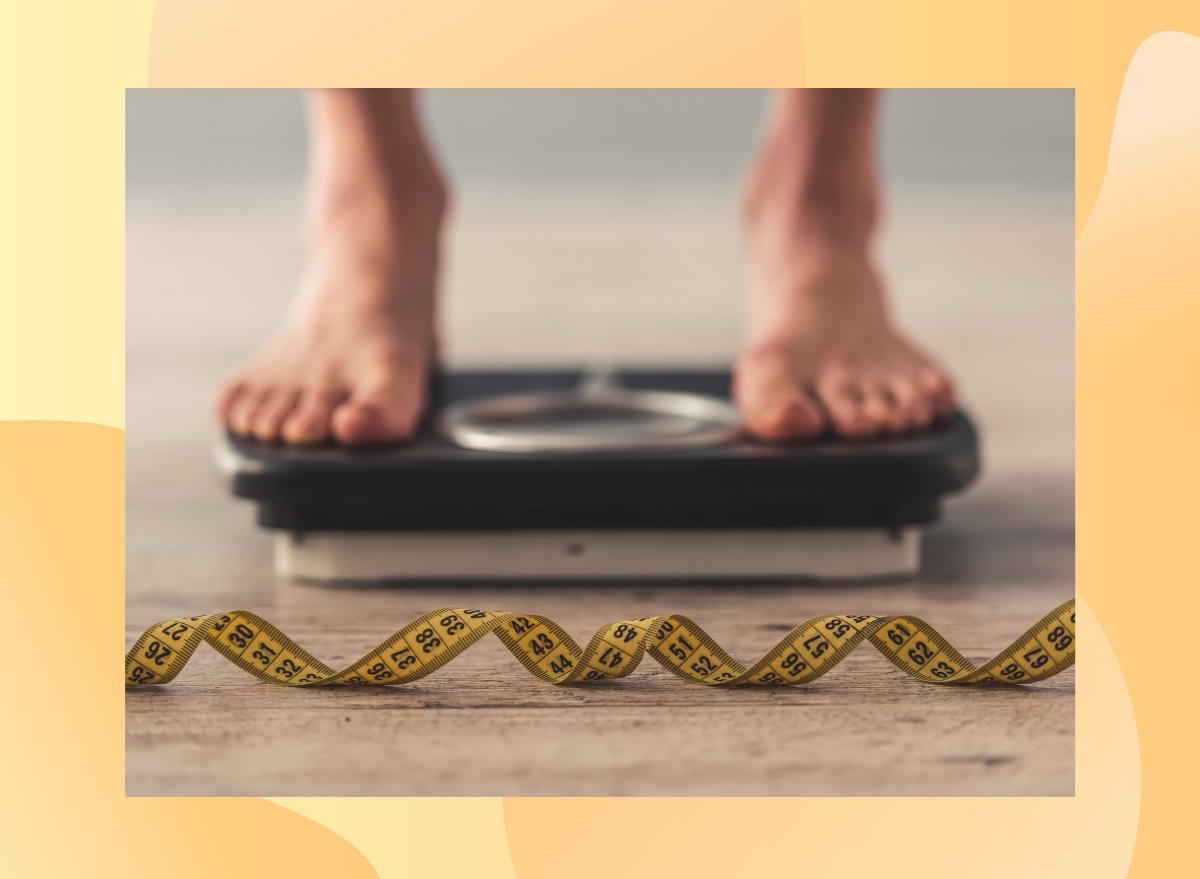
If you’ve ever gained weight unexpectedly, you know how easy it is to cast blame on that double-cheeseburger you availed yourself of the night before you stepped on the scale. But the truth is, weight gain—like weight loss—occurs over time. “It’s usually ‘small behaviors plus time,’ rather than the big ones, that lead to weight gain,” Jonathan Ross, the American Council on Exercise’s senior adviser on personal training, explained to Men’s Journal. “We might think about knocking out a half of a pizza one night out, but the bigger issue might be the soda we have in the afternoons as a pick-me-up. It’s a small, single choice, but if it’s repeated frequently enough, it can cause a big impact.”
Believe it or not, some of those bad decisions are so small you don’t even know you’re making them—from eating one of the world’s healthiest foods simply too much to putting the wrong thing in your cup of Joe every morning. For a look at some of the smallest and sneakiest little decisions you’re unwittingly making that may be packing on a few extra pounds, read on, because we’ve compiled them right here. And if you’re looking to lose that extra weight, don’t miss these 10 Easiest Weight-Loss Tricks That Actually Work.
You’re an avocado addict
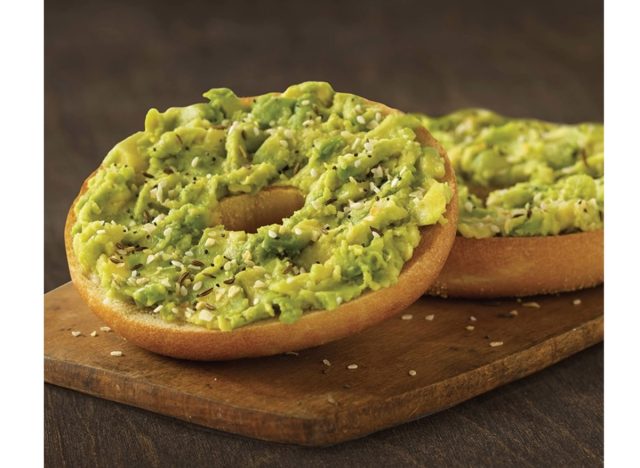
As healthy as avocados are—they’re amazing sources of fiber, vitamins, nutrients, and good monounsaturated fats—the fact is, like many foods, you can gain weight by eating too many of them, says nutritional coach Ted Kallmyer, CFT, an ISSA-certified specialist in fitness nutrition.
“People can’t get enough of these healthy fruits, what with avocado toast, avocado on salads, roasted avocado, and putting them smoothies,” he says. “While avocados are a very healthy food, they are also very high in calories because of the generous amount of healthy fat they contain. According to the USDA, 1 cup of crushed avocado is 384 calories and 34 grams of fat. Eating avocado with abandon quickly adds up and pushes a person into an energy surplus for the day which will cause the body to store fat. Enjoy them in moderation by only eating around 100 grams or half a medium-sized fruit per day.”
You’re grazing too much
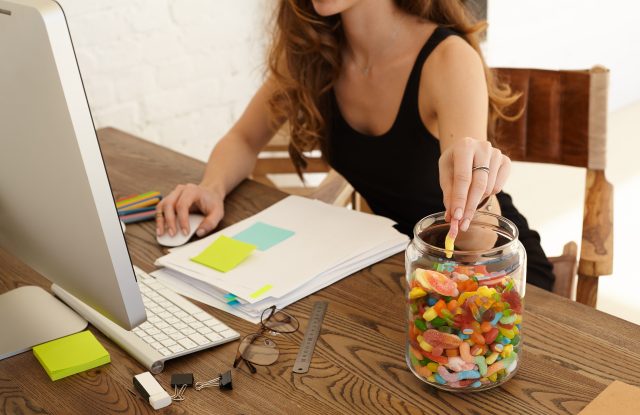
According to nutritionist, chiropractor, and author Daryl Gioffre, DC—whose clients including talk-show host Kelly Ripa, supermodel Petra Nemcova, and beauty magnate Bobbi Brown—one of the sneakiest ways you can gain weight is by grazing too much. “The average American grazes all day, eating roughly 17 times per day, including snacks,” says Gioffre. “While constant grazing will stimulate your metabolism, there is more downside than upside as it steadily dumps insulin into your blood, which cues your body to store fat.”
All of that insulin can drive inflammation and unleash your hormone leptin, which leaves you feeling hungry. “Ironically, eating less often helps you feel fuller, longer because it resets your hormones and eliminates insulin and leptin resistance,” he says.
Even if you’re grazing on healthy foods, it may behoove you to take note. “It’s important to take into account that healthy items such as nuts and seeds, nut butters, and fruits still have calories,” says Kelly Krikhely, MS, RD, CDN. “Being mindful of these small bites of food can help with weight maintenance.” And for some great ways to lose weight, don’t miss these Sneaky Weight Loss Tricks That Actually Work, According to Experts.
You’re not drinking your coffee black
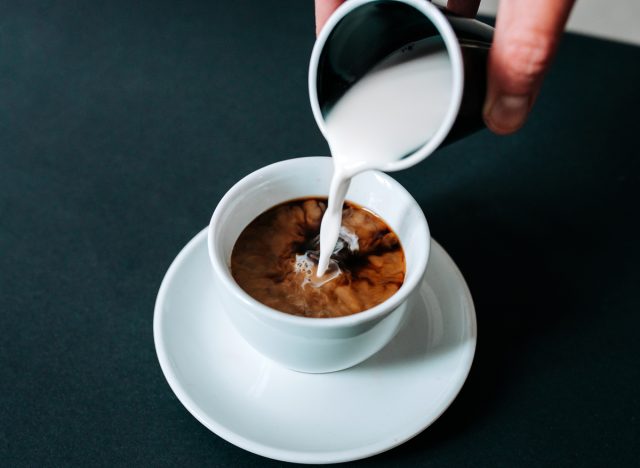
Sixty-seven percent of Americans put something in their morning coffee, according to a study from Public Health, and those add-ins can be an extra 69 calories per day—much of that coming from added sugar. “Flavored hot beverages can be one of the biggest culprits when it comes to calories that sneak up on you,” says Krikhely. “Multiple pumps of syrup, whipped cream, caramel, or chocolate syrup topping—or even simply a large serving of milk—can turn a simple cup of coffee or tea into the equivalent of a large helping of dessert.” For a complete list of morning coffee no-no’s, see this list of 7 Things You Should Never Add to Your Coffee.
You’re waiting too long between meals

According to Shena Jaramillo, MS, RD, one of the sneakiest ways you’re gaining weight is by simply waiting too long to eat in-between meals. “This can cause us to crave really high-fat, high-calorie food choices, and to eat more of them at mealtimes,” she says. “Overall this leads to excess calorie intake and weight gain.”
According to Edward Bitok, DrPH, MSN, RDN, a professor at the Department of Nutrition & Dietetics at the LLU School of Allied Health Professions, the ideal amount of time to elapse between meals is three and five hours. As Bitok explained to Insider, this is the “average time it takes for the stomach’s contents to be emptied into the small intestine after a standard meal.”
To keep your blood sugar levels stable, feed your body a steady stream of necessary nutrients, and help control hunger-induced cravings for unhealthy snacks, try a nutritious meal or snack every three hours.
You’re eating sugar-free snacks
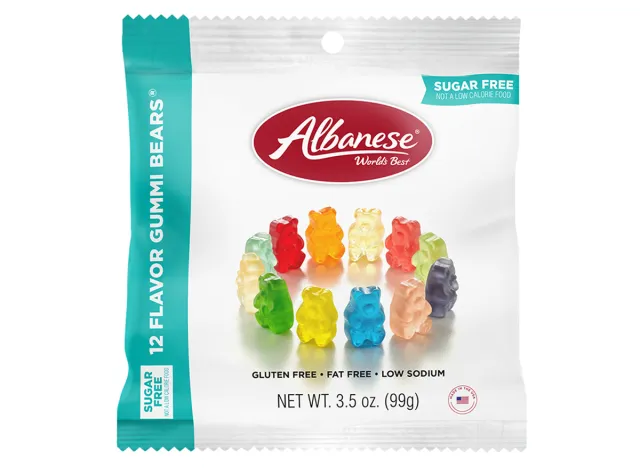
“Those sugar-free biscuits and ‘only natural ingredients’ health bars, for example, are secretive tricksters,” says David McHugh, founder and CEO of the health site My Mixify. “Although sugar-free products lack the processed sugar, they don’t fill you up, causing you to eat more than you need. On top of that, natural product health bars still contain a lot of sugar from dried fruits and dates, which still means you’re taking in too much sugar.”
The same applies to “sugar-free” sodas. “Diet sodas are known to cause weight gain!,” says Andrea Paul, MD. “Diet sodas increase our insulin levels, increase our taste for sweets, and tends to make people think they can eat more since they are drinking a calorie-free drink.”
You’re eating anything straight from the bag
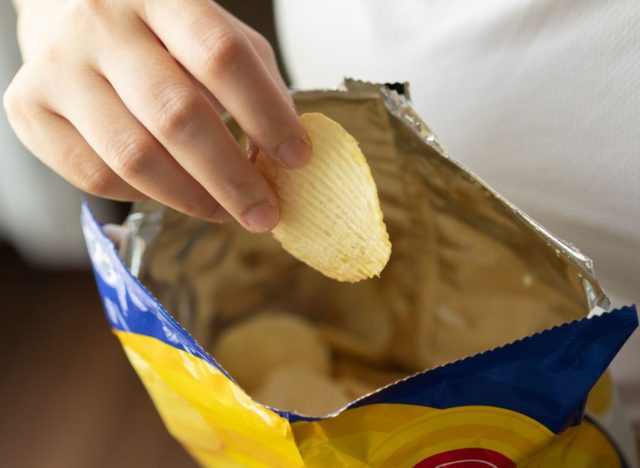
Fact: Monitoring the serving size of any food—healthy or unhealthy—is a responsible weight-loss tactic we wholeheartedly endorse. Another fact: You can’t monitor the serving size of anything if you’re whoofing it straight from the bag it comes in.
You’re snacking while prepping meals
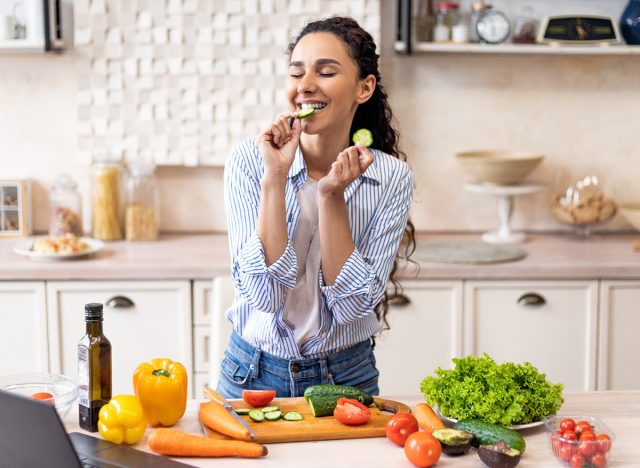
“People often nibble and snack on foods while they’re preparing meals, without taking into account that these nibbles have calories, too,” says Krikhely. “For those with a tendency to snack while cooking, keeping ready-to-eat vegetables available to snack on can be helpful. A few ideas could be baby carrots, grape tomatoes, or sliced bell peppers. These items have crunch and lots of flavor, and will satisfy that urge to nibble without sneaking in tons of unwanted calories.”
You’re not storing food in glass containers
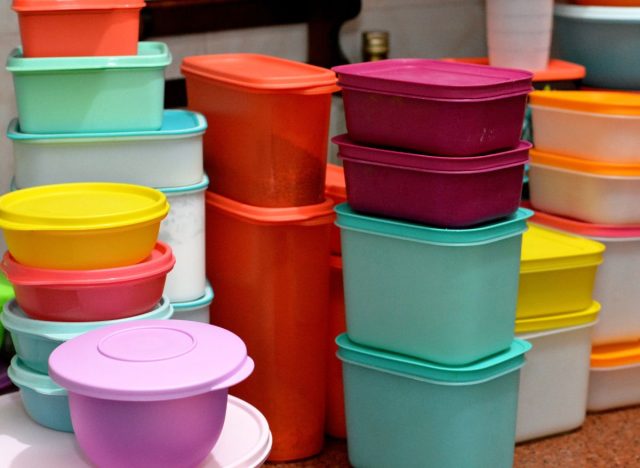
It’s not just the food you put into your body that affects your weight and your metabolism. How you’re storing your food plays a role, as well, says Sarah Rahal, MD.
“Unfortunately, different chemicals, such as parabens and bisphenols (which are found in plastic wrap and containers) mimic estrogen in the body, and can lead to hormone disruption and weight gain,” Rahal says. “This is also true for other chemicals you may have in the home, like phthalates which are found in artificial fragrances. These exposures are a hidden culprit in weight gain, and important to avoid! Steer clear of plastics by storing food in glass containers, using glass or stainless steel water bottles, and never reheating food in plastic. Also, avoid artificial fragrances by opting for essential oils.”
You’re working out too much
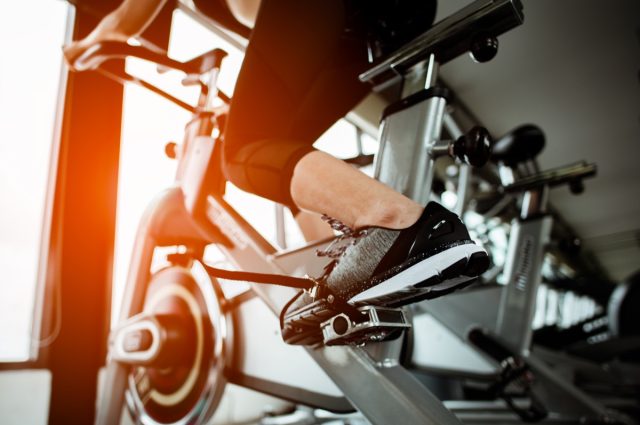
This won’t necessarily apply to everyone, but, according to Amanda Brooks, CPT, author of Run To The Finish: The Everyday Runner’s Guide to Avoiding Injury, Ignoring the Clock, and Loving the Run, you could be secretly gaining weight by pounding the pavement too hard.
“One of the most fascinating things I see in runners I work with is that they’re doing too much,” she says. “Often our stress hormone cortisol is high from a busy day at work, plus family, and then we add in super intense workouts, which means it never gets a chance to drop. That high level of cortisol has been shown to increase the body’s retention of belly fat.”
Her advice to those people is to “slow down on your runs and truly go easy often.” You’ll feel better and be suddenly shedding the weight that you accumulated while overdoing it.
You’re having a few cocktails
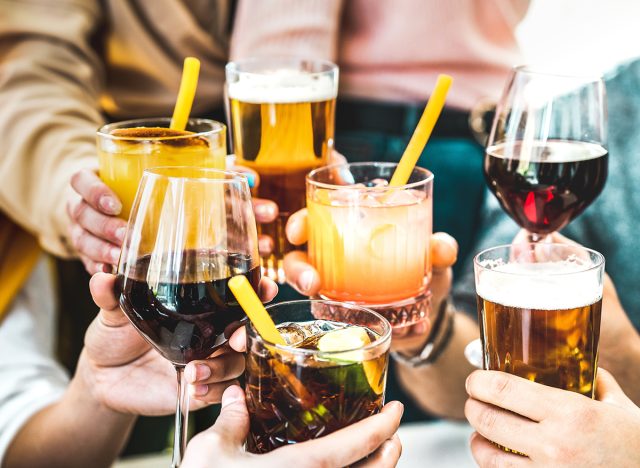
Fact: Alcohol is a major weight-loss no-no. “Those two or three cocktails can add 600, 700, 800 calories or more to the caloric totals of the day,” says Haris Bacic, co-founder of the menu tracker Pricelisto. “Those will wind up being reflected on the scale.”
You eat too many protein bars
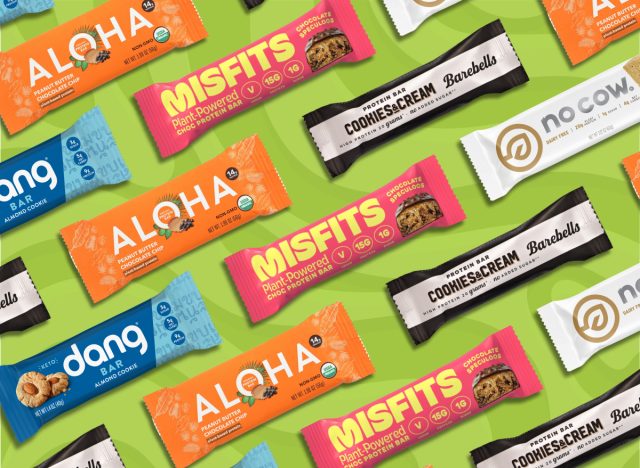
“One common way that many people slowly gain weight over time is through an exercise boosting supplement: protein bars,” says Ashlee Van Buskirk, BS, founder of fitness and nutrition coaching business WholeIntent. “Yes, it’s true that most protein bars are packed with a healthy dose of protein which can help build muscle mass and strengthen your entire body following a workout. However, most protein bars actually contain a lot of calories. Some can range from 200-250 calories per bar! That amount of calories just isn’t right for a small snack. Protein bars can still be a part of your exercise routine and dieting strategy, but just remember: everything in moderation. You don’t really need to have a protein bar every day or after every workout.”
You dine with platters on the table, Thanksgiving-style
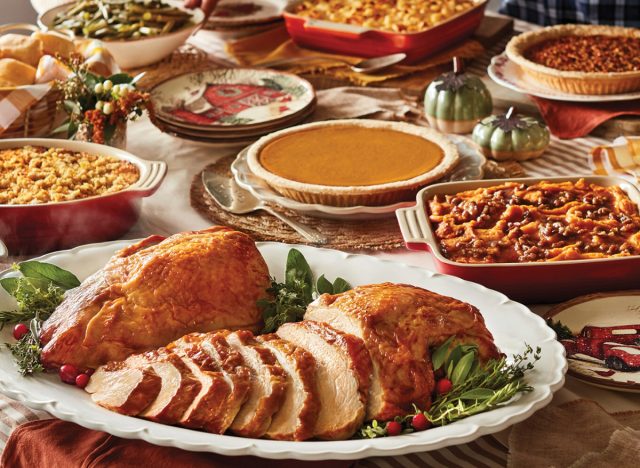
One of the easiest ways to avoid overeating is to make it slightly more difficult to reach your food. Conversely, one of the sneakiest ways to overeat is to simply have the entire smorgasbord in front of you all along.
“Putting platters on the table is one way you’re guaranteeing that you’re going to eat more than you want to,” says health and food journalist Ruth Houston. “This will only encourage and facilitate a second and third helping. Instead, always plate your food in the kitchen, restaurant-style.” For more great weight-loss advice, be sure to read our ultimate list of 200 Best Weight Loss Tips on the Planet.
